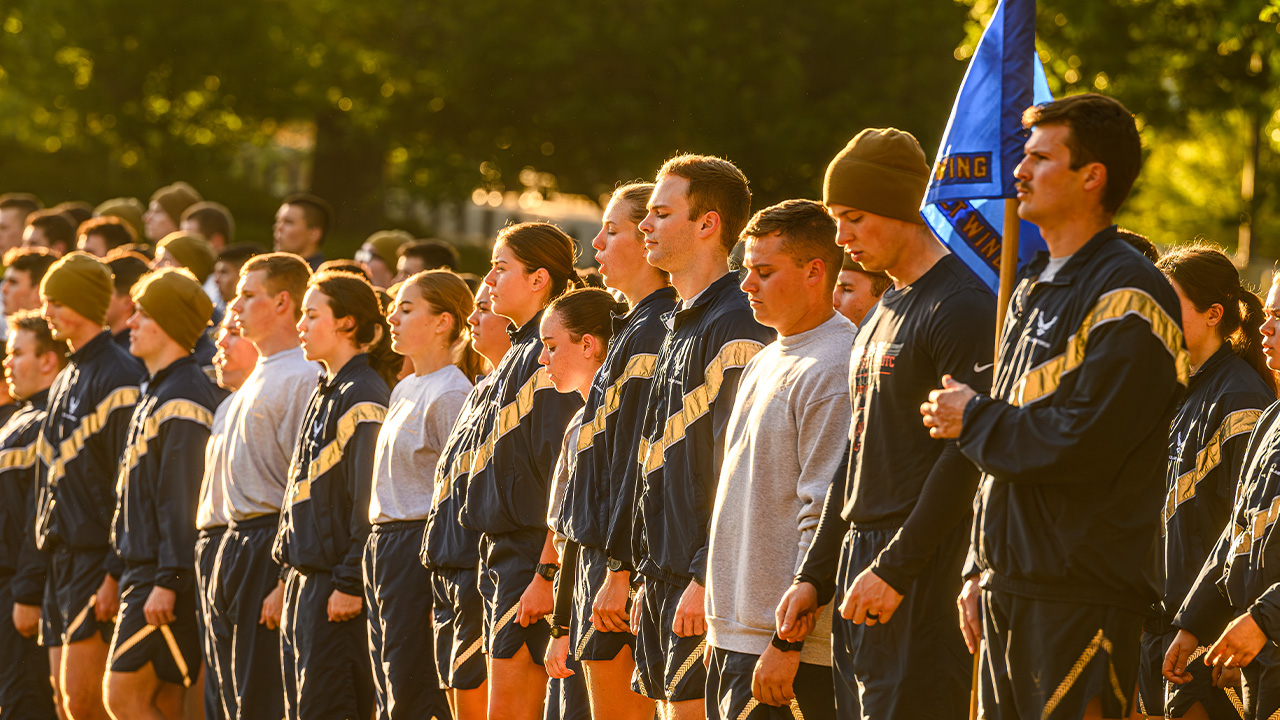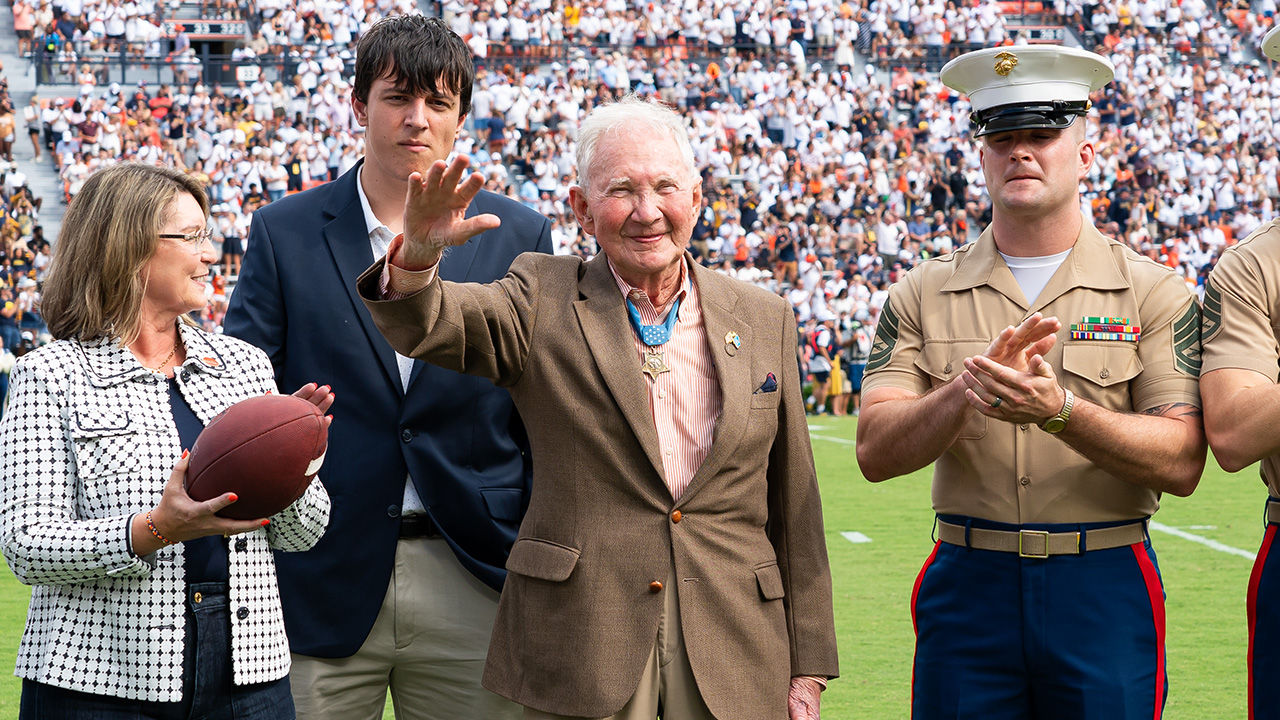content body

Auburn University students enrolled in the U.S. Air Force ROTC program prepare to compete in the 2024 Battle of the Branches, a physical challenge between ROTC units.
It takes a lot of time to screen 500 members of the United States Air Force for health and wellness, but that’s exactly what Auburn University faculty member JoEllen Sefton and her team are doing.
Sefton, a professor in Auburn’s School of Kinesiology, is leading a team of faculty members, postdoctoral researchers and graduate and undergraduate students in developing BOLT, a comprehensive performance initiative for military service members attending Air University at Maxwell Air Force Base in Montgomery, Alabama. She and her colleagues are using a $500,000 grant to create the first phase of a plan that can improve service members’ quality of life and professional performance.
The Air Force is partnering with Sefton, who has been researching military populations since 2008, because of her wealth of experience as director of Auburn’s Warrior Research Center, housed in the College of Education.
“We’ve been doing this research for a long time, so this seemed like a logical next step” she said. “All the years we were down at Fort Benning [in Georgia] taught us a lot about what will and won’t work. One reason the Air Force came to us is because the Warrior Research Center reaches out across Auburn to collaborate with partners that can help us provide any additional expertise that’s needed.”
BOLT, named for the lightning bolts on the Air University shield, is designed to focus on the Air Force’s four pillars of Comprehensive Airman Fitness: physical, social, spiritual and mental. The first participants of the program are the 500 military service members currently teaching and studying at Air University’s Air Command and Staff College, a school that prepares students for higher-level positions in military or government, including those in air, space and cyberspace operations.
Once Sefton and her team complete all 500 wellness assessments, they’ll begin providing targeted performance plans for individuals who express interest in improving their scores. At the end of the academic year next spring, all participants will be screened again, and researchers will collect data on the success of the interventions offered.
Sefton says an academic year at Air University is the perfect time and place for these screenings, because it’s when military service members are not in a combat zone that they suddenly become aware of issues with wellness.
“When they come off of deployment or out of command, they’ve been going a thousand miles an hour with their tails on fire, and a lot of issues often show up during this time off,” she said. “The goal is to focus these 10 months in school on your own performance and wellness, when you’re not deployed and not in command. Then you can take what you learn back out to the force and be a better leader, and the people under you can learn how to keep that human weapons system, as we call it, at peak performance and peak wellness for both the military and family.”
For those who request interventions, Sefton and her team will make recommendations to increase performance and wellness and then track each one’s effectiveness. While they intend to expand into all the pillars eventually, they’re beginning with physical wellness, screening for flexibility, functional movement, cognitive performance, strength, power and cardiovascular fitness.
With their wide-ranging expertise, the team from kinesiology can build programs for every individual that include personalized fitness plans, nutrition advice, cognitive performance improvement and stress reduction techniques. They’ll be on base several days a week so service members can easily access guidance.
“If there’s an area of the screening where you scored poorly and you want to improve your strength, we have strength and conditioning specialists that can work with you on those. If you want us to help you figure out why you have foot pain, we can look at your running gait,” she said. “We’re not just telling you what’s wrong, we’re helping you improve, if you choose to do the work.”
Once the team has the data from all assessments, Sefton intends to begin offering yoga classes, educational sessions on mindfulness and other resources she finds are needed. So far, Sefton says she’s heard nothing but good things from participants.
“Air University faculty were raving about it,” she said. “The feedback has been wonderful, and they’re excited to see how this goes. They want to know how they can get better.”





